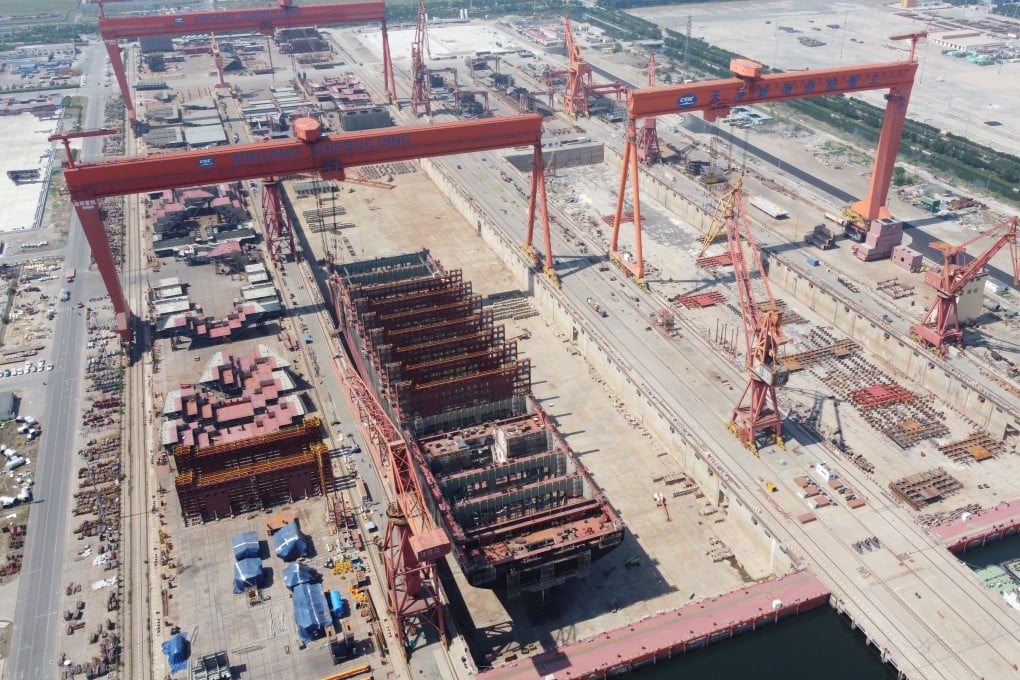China’s arbitration ‘sore spot’ holding up shipbuilding ambitions amid growing need for rules
- China is a world leader in terms of shipbuilding capacity and trade volume, but it is seen to lag behind in terms of services surrounding the industry, including arbitration
- Demand is being driven by the Maritime Silk Road, which is the sea route part of China’s Belt and Road Initiative

As China looks to cement its place as the world’s largest shipbuilder, a fully functional dispute resolution process remains a particular “sore spot” amid Beijing’s soft power shift and push for a Maritime Silk Road, industry insiders said.
China is a world leader in terms of shipbuilding capacity and trade volume, but it lags far behind in services surrounding the industry despite a surge in demand, said Zhang Shouguo, executive vice-president of the China Shipowners’ Association, on Wednesday at the China International Import Expo in Shanghai.
Amid China’s transformation from a major economy to a strong economic power, insurance, consulting and finance services are essential, but arbitration remains “a particular sore spot” as it seeks to catch up with the likes of Singapore, New York and London, he added.
“What did we care about previously? It was how many ships came to register in China, and how much our throughput had increased … but now we need to focus on soft power,” he said.
Authorities have vowed in recent years to build China into a new destination for international arbitration, and Shanghai, as one of the world’s main shipping hubs, into a centre in the Asia-Pacific region to rival Hong Kong.